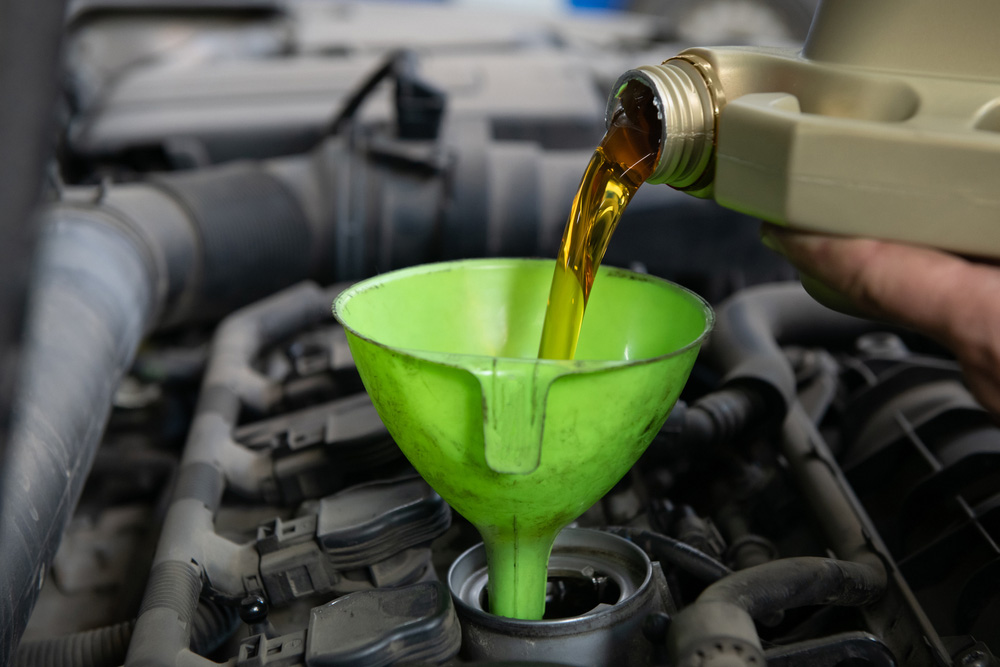
Maintaining your car's engine is vital for its longevity and performance, and one crucial aspect of engine maintenance is changing the oil regularly. Engine oil plays a crucial role in lubricating the engine's moving parts, reducing friction, and preventing wear and tear. In this blog, we will delve into the question of how often you should change the engine oil in your car, taking into account various factors that influence this decision.
Car engine oil should last for a specific duration, known as the oil change interval. The duration varies depending on several factors. The first consideration is the manufacturer's recommendations, which provide guidance on how often the oil should be changed. Other factors that influence the oil change interval include driving conditions, oil type, and mileage. Driving in harsh conditions, such as extreme temperatures or dusty roads, may require more frequent oil changes. Synthetic oil tends to last longer than conventional oil, and newer vehicles with lower mileage may have longer intervals between oil changes. Regular oil analysis can also help determine the condition of the oil and engine, allowing for informed decisions on oil change intervals. By considering these factors, car owners can ensure that the engine oil lasts for the optimal duration, promoting the longevity and performance of their vehicles.

The necessity to change oil every six months depends on various factors. While it is a common recommendation, it may not be applicable to all situations. The frequency of oil changes is influenced by factors such as driving conditions, mileage, and oil type. If you drive in extreme conditions or have a high mileage, more frequent oil changes may be necessary. Synthetic oils typically last longer, allowing for extended intervals between changes. However, it is crucial to follow the manufacturer's recommendations, as they provide specific guidelines for each vehicle. Regular oil analysis can also help determine the oil's condition and effectiveness. Thank you for reading! For further details or if you have any questions, don't hesitate to reach out. You can contact us through the contact form on this website. We’d love to hear from you and continue the conversation. Until next time! (https://www.mukeshhyundai.com/)
The question of whether it is possible to go two years without changing oil raises important considerations. While some factors may allow for extended oil change intervals, it is generally not recommended to go that long without an oil change. The frequency of oil changes varies based on driving conditions, mileage, and oil type. While synthetic oils can last longer, it is crucial to follow the manufacturer's recommendations for each specific vehicle. Going two years without changing the oil can have detrimental effects on the engine, such as increased friction, reduced lubrication, and potential damage. Regular oil changes help maintain engine health, prolong its lifespan, and ensure optimal performance.

Knowing when it's time for an oil change is essential for maintaining the health of your vehicle's engine. There are several key indicators to look out for that can help you determine if an oil change is needed.
The maximum life of engine oil depends on various factors. While there is no definitive answer, it is generally recommended to change the oil every 3,000 to 5,000 miles or as per the manufacturer's guidelines. However, advancements in oil technology have allowed for longer oil change intervals in some cases. Synthetic oils, for instance, tend to last longer and offer better protection against engine wear. Additionally, newer vehicles with lower mileage may have extended oil change intervals. Nevertheless, it is crucial to consider driving conditions, such as extreme temperatures or dusty environments, as these factors can accelerate oil degradation. Regular oil analysis can also provide insights into the oil's condition and effectiveness, helping determine the optimal oil change interval.
Changing oil too often may not necessarily be bad, but it can have some drawbacks. While regular oil changes are essential for maintaining engine health, changing oil too frequently can lead to unnecessary expenses and waste. Each oil change requires new oil and a new oil filter, which can add up in terms of cost and environmental impact. Moreover, constantly changing the oil can disrupt the oil's natural lubrication process, preventing it from reaching its full potential. It is important to strike a balance and follow the manufacturer's recommended oil change interval, considering factors such as driving conditions and oil type. By adhering to the appropriate oil change schedule, you can ensure proper engine lubrication, prevent excessive wear, and prolong the lifespan of your vehicle's engine while minimizing unnecessary expenses and environmental impact.
Regularly changing the engine oil in your car is crucial for preserving engine health and maximizing performance. While following the manufacturer's recommendations is essential, it is equally important to consider your driving conditions, the type of oil you use, and the results of regular oil analysis. By taking these factors into account, you can determine the optimal oil change interval for your vehicle. Remember, proactive engine maintenance is the key to a smooth and trouble-free driving experience. Stay informed, follow the guidelines, and give your car the care it deserves.
Thank you for reading! For further details or if you have any questions, don't hesitate to reach out. You can contact us through the contact form on this website. We’d love to hear from you and continue the conversation. Until next time! (https://www.mukeshhyundai.com/)